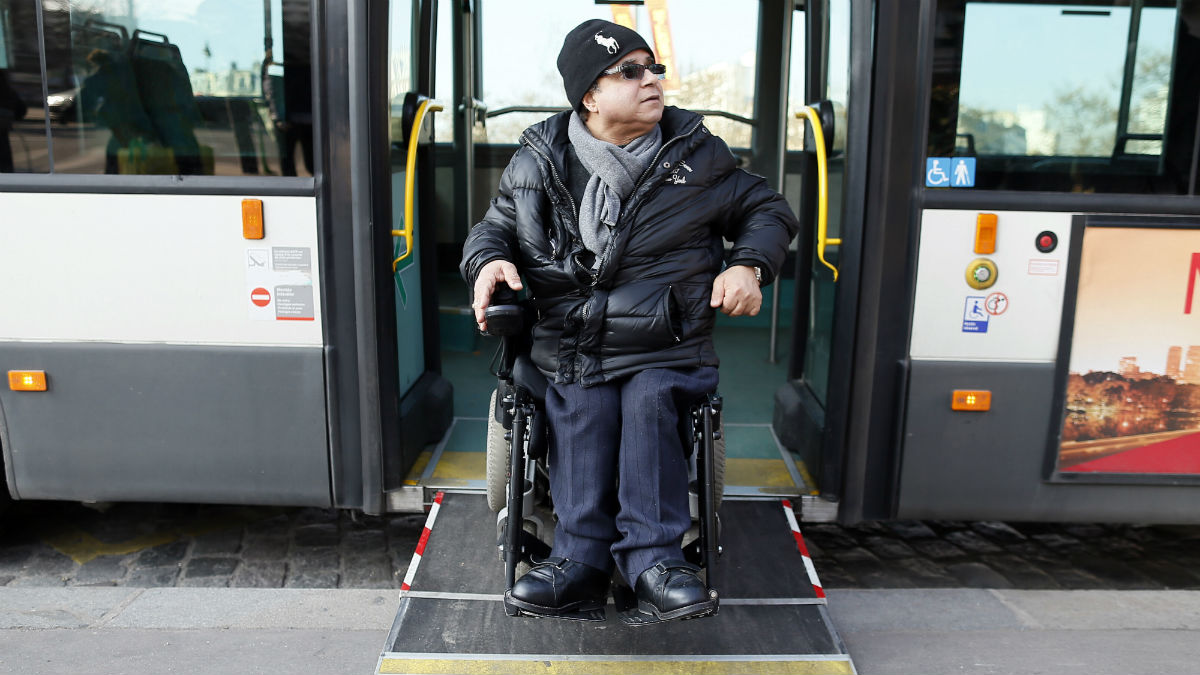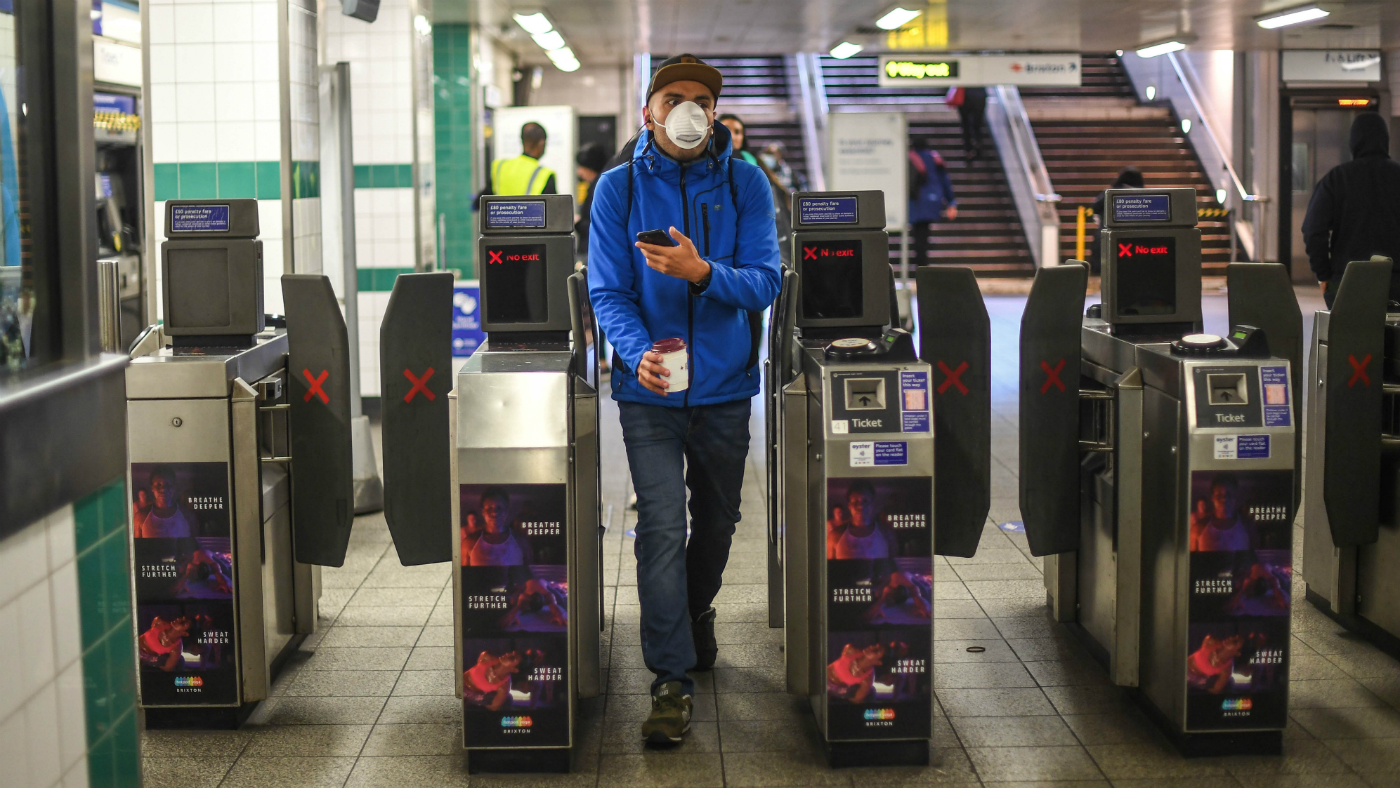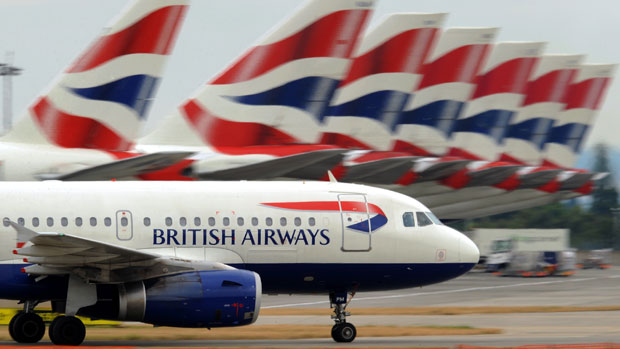Wheelchairs vs buggies: Disabled man wins Supreme Court case
Bus drivers must do more to pressure non-wheelchair users to vacate allotted spaces, rule judges

A free daily email with the biggest news stories of the day – and the best features from TheWeek.com
You are now subscribed
Your newsletter sign-up was successful
A disabled man has won a Supreme Court case after a woman refused to move her buggy to make room for his wheelchair on a bus in 2012.
It means bus drivers may have to do more to accommodate wheelchair users, says the BBC.
Supreme Court president Lord Neuberger said that if non-wheelchair users unreasonably refused a request to vacate the space, bus drivers should consider further action to pressure them into moving, depending on the circumstances.
The Week
Escape your echo chamber. Get the facts behind the news, plus analysis from multiple perspectives.

Sign up for The Week's Free Newsletters
From our morning news briefing to a weekly Good News Newsletter, get the best of The Week delivered directly to your inbox.
From our morning news briefing to a weekly Good News Newsletter, get the best of The Week delivered directly to your inbox.
He added: "Where the driver concludes that the non-wheelchair user's refusal is unreasonable, it seems to me that it would be unjustifiable for a bus-operating company to have a policy which does not require some further step of the bus driver in any circumstances."
The BBC says the judgment falls short of making it a legal requirement for companies to compel passengers to make way for wheelchair users. In his ruling, Neuberger said he was "unenthusiastic" about signs on buses being altered to say a policy of everyone moving out of the way for wheelchair users "would be enforced".
Doug Paulley, from Wetherby, West Yorkshire, who brought the case, told ITV he was "absolutely delighted" and that the judgment marked "a significant cultural change".
The Equality and Human Rights Commission, which has supported Paulley in court, described the Supreme Court ruling as "a victory for disabled people's rights" and "a hugely important decision".
A free daily email with the biggest news stories of the day – and the best features from TheWeek.com
But Paulley's solicitor, Chris Fry, said the ruling had fallen short.
He said: "The judgment should have gone further. There's no right as things currently stand to force someone off a bus. So it goes as far as that, but not that far yet."
How did the case begin?
Paulley took action against FirstGroup transport company after he was unable to board a bus from Wetherby to Leeds in February 2012, when a woman with a pushchair refused to move out of the designated area despite being asked by the driver.
A judge at Leeds County Court ruled the company's policy of "requesting but not requiring" people to move was in breach of the Equality Act 2010 and Paulley was initially awarded £5,500 in compensation.
However, the Court of Appeal overruled the decision in December 2014, saying transport companies were not required to force one commuter to make way for another. The case then went to the Supreme Court.
What was the argument?
The case regarded not whether the driver acted accordingly, but whether FirstGroup's policy was discriminatory against disabled people and wheelchair users, in particular. If a person requires a wheelchair for mobility and cannot gain access to the designated space, they cannot board the bus.
-
 How the FCC’s ‘equal time’ rule works
How the FCC’s ‘equal time’ rule worksIn the Spotlight The law is at the heart of the Colbert-CBS conflict
-
 What is the endgame in the DHS shutdown?
What is the endgame in the DHS shutdown?Today’s Big Question Democrats want to rein in ICE’s immigration crackdown
-
 ‘Poor time management isn’t just an inconvenience’
‘Poor time management isn’t just an inconvenience’Instant Opinion Opinion, comment and editorials of the day
-
 Rail strikes: is Britain on track for a ‘summer of discontent’?
Rail strikes: is Britain on track for a ‘summer of discontent’?Speed Read The ‘biggest rail strike in modern history’ is planned for next week
-
 ‘See it. Say it. Sorted’: is it the end of the line for train announcements?
‘See it. Say it. Sorted’: is it the end of the line for train announcements?Speed Read The transport secretary has pledged a ‘bonfire of the banalities’ on England’s railways
-
 UK to bring in airport Covid tests for arrivals
UK to bring in airport Covid tests for arrivalsSpeed Read MPs call for stricter border measures as South African variant of coronavirus spreads
-
 UK records biggest jump in transport use since pandemic began
UK records biggest jump in transport use since pandemic beganSpeed Read Monday rush hour sees spike in commuters across country as trains return to 90% of pre-coronavirus services
-
 Coronavirus: what are the odds of catching Covid-19 on a plane?
Coronavirus: what are the odds of catching Covid-19 on a plane?Speed Read Studies suggest air travel is safe despite concerns about air quality
-
 Plane crashed ‘as distracted pilots discussed Covid fears’
Plane crashed ‘as distracted pilots discussed Covid fears’Speed Read Preliminary report says ‘human error’ to blame for crash in Pakistan that claimed 98 lives
-
 Coronavirus: Virgin Atlantic tells staff to take unpaid leave
Coronavirus: Virgin Atlantic tells staff to take unpaid leaveSpeed Read Move comes amid warnings that global pandemic could bankrupt aviation industry
-
 UK airlines call for multibillion-pound coronavirus bailout
UK airlines call for multibillion-pound coronavirus bailoutSpeed Read Demand comes ahead of ‘bloodiest week in British aviation history’